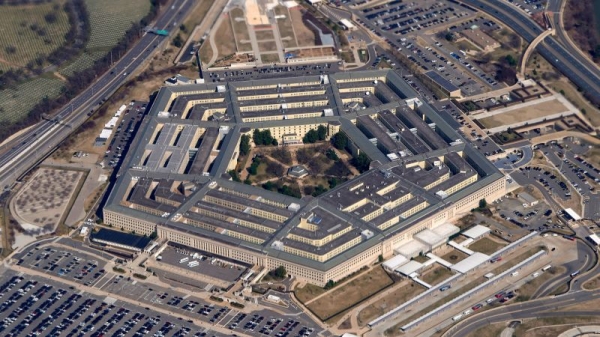
The Pentagon’s inspector general is launching a review of whether the Pentagon has the appropriate policies in place to ensure an effective transfer of power and duties following Defense Secretary Lloyd Austin’s hospitalizations that were not immediately disclosed to the White House or other senior national security officials.
The Inspector General’s office notified Austin, his deputy Kathleen Hicks, and the Pentagon’s director of administration and management that the IG would begin a review this month “to examine the roles, processes, procedures, responsibilities, and actions related to the Secretary of Defense’s hospitalization in December 2023 – January 2024, and assess whether the DoD’s policies and procedures are sufficient to ensure timely and appropriate notifications and the effective transition of authorities as may be warranted due to health-based or other unavailability of senior leadership,” according to a memo made public on Thursday.
The IG review, which the memo says will be carried out at the Office of the Secretary of Defense, is separate from the ongoing, 30-day internal Pentagon review that is examining whether appropriate notification procedures were followed and whether changes need to be made.
On Tuesday, the Pentagon revealed Austin is being treated for prostate cancer at Walter Reed National Medical Center, following days of speculation about the cause of his hospitalization.
He remained at Walter Reed Thursday evening, as the US and UK carried out airstrikes against more than a dozen targets in Houthi-controlled areas of Yemen. Austin ordered and monitored the strikes on Houthi targets in Yemen from the hospital “with a full suite of secure communications,” a senior defense official said Thursday.
The episode has raised huge questions about transparency and communications within the administration, and the White House launched its own internal review of the processes surrounding appropriate notifications and transfer of authorities amid the backlash over Austin’s secrecy.
The Pentagon “welcomes” the investigation, Pentagon spokesman Maj. Gen. Pat Ryder said Thursday.
“The Department of Defense Inspector General has initiated a review to examining the roles, processes, procedures, responsibilities, and actions related to the Secretary of Defense’s hospitalization in December 2023 and January 2024, and assess whether the DOD’s policies and procedures are sufficient to ensure timely and appropriate notifications, and the effective transition of authorities as may be warranted due to health based or other unavailability of senior leadership,” Ryder said. “The department welcomes the DoD IG’s review and will fully support.”
A statement from Austin’s doctors said that the cancer was discovered in early December. He underwent a “minimally invasive surgical procedure” on December 22 called a prostatectomy to treat the cancer and was placed under general anesthesia, his doctors said. Austin transferred some authorities to his deputy, Kathleen Hicks, prior to the surgery, Pentagon press secretary Maj. Gen. Patrick Ryder told reporters. But neither she nor the White House was informed that Austin was in the hospital at all, Ryder has acknowledged.
On January 1, Austin was readmitted to the hospital due to complications “including nausea with severe abdominal, hip and leg pain.” He was found to have a urinary tract infection, his doctors said in their statement, and he was admitted to the intensive care unit on January 2.
Once again, however, neither Austin’s deputy nor the White House was immediately informed of his whereabouts or condition. The White House, Hicks, and other senior national security leaders were not told until three days after Austin’s admission to Walter Reed, and the public and Congress was not told until January 5. Ryder told reporters this week that the delay in notifications was because Austin’s chief of staff, who would normally notify relevant parties, was out sick with the flu.
National Security Council spokesman John Kirby said Tuesday that Biden only learned Tuesday morning of Austin’s diagnosis – hours before it was disclosed publicly.
Despite the obfuscation of his diagnosis to the president, Kirby said Biden has “complete confidence” in his defense secretary and plans to keep him in his position through his term, while simultaneously acknowledging the situation was not ideal.
“It is not optimal for a situation like this to go as long as it did without the commander in chief knowing about it,” Kirby said.
This story has been updated with additional details.
CNN’s Oren Liebermann contributed to this report.




